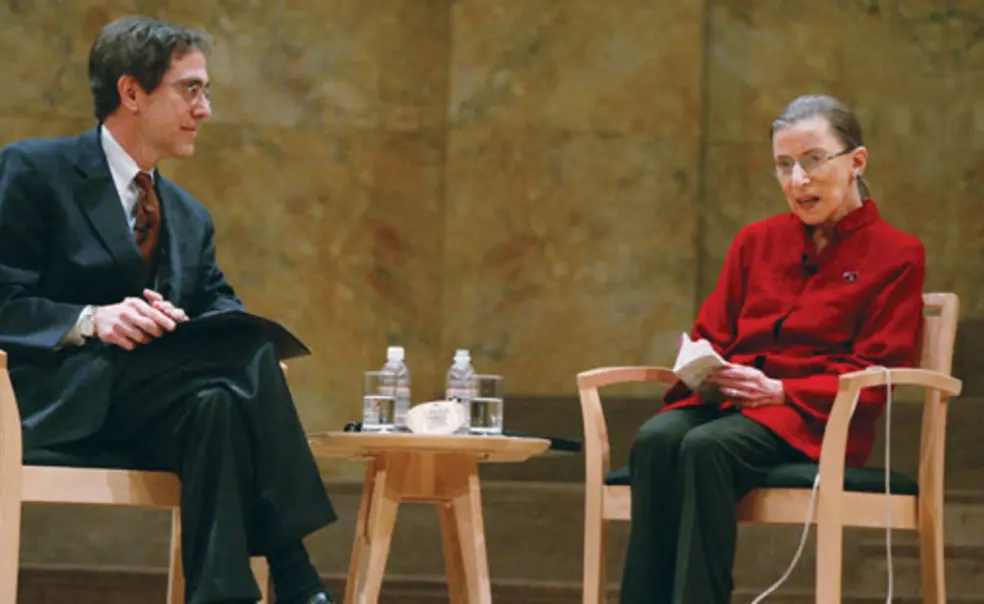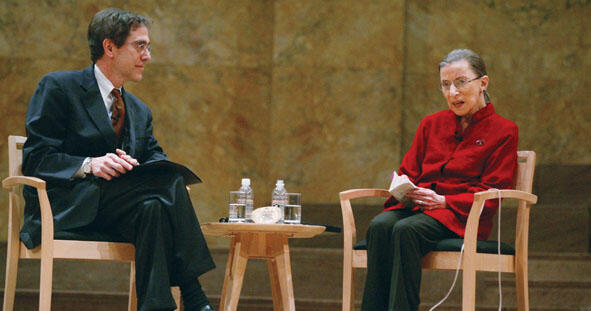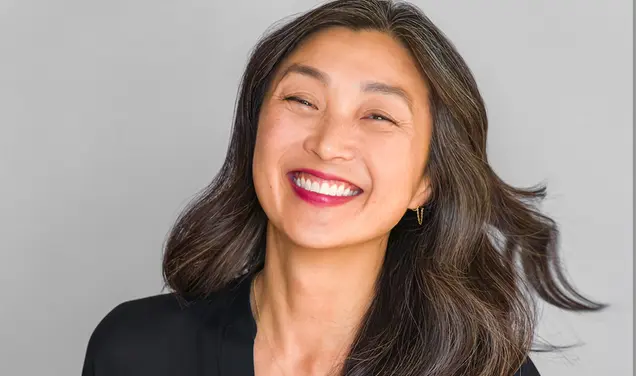A behind-the-scenes look at the Supreme Court
Supreme Court Justice Ruth Bader Ginsburg may not agree with colleague Antonin Scalia on many judicial issues, but she does concede that the conservative justice has the high court’s best singing voice. Ginsburg shared this and other tidbits from “the lighter side of life in our marble palace” with a capacity audience at Richardson Auditorium Oct. 23. She also discussed women’s rights, constitutional interpretation, and the Bush v. Gore case.
Ginsburg’s prepared remarks focused on behind-the-scenes collegiality. Each day begins with a series of 36 handshakes, she said, and the justices lunch together by choice. Lunchtime conversation ranges from opera to grandchildren. After Ginsburg’s speech, University provost Christopher Eisgruber ’83 asked the justice to address the “heavier side” of constitutional law as he moderated a wide-ranging, 45-minute question-and-answer period.
In speaking about constitutional interpretation, Ginsburg referred to a pocket-sized copy of the document, reading passages from the 14th Amendment. The Constitution is not “a frozen-in-time instrument,” she said, arguing that much of its language was written to “govern the society as it evolves over time.”
Ginsburg, a founder of the American Civil Liberties Union’s women’s-rights project, spoke at length about the progress the United States has made in that area. She used Princeton as an example, mentioning “strong disagreements” with the University that nearly led to litigation in the 1970s, including the case of a summer engineering program for high school students from low-income and minority backgrounds. The program only admitted boys, and its director justified the policy by telling Ginsburg that girls would distract the boys from their intensive studies. That sort of discrimination, Ginsburg said, “would be totally unthinkable today.”
When Eisgruber asked about the Bush v. Gore decision of 2000, Ginsburg remembered Scalia’s words on the topic, spoken at Princeton last March: “Get over it.” (Scalia voted in favor of Bush, stopping the Florida recount; Ginsburg dissented.) While Ginsburg had little to say about the case, she noted that the decision never has been cited by the court. “It was a decision for one day and one case,” she said.
It was a tense day on the court, according to Ginsburg, but that evening, Scalia placed a memorable phone call to her office.
“He said, ‘Ruth, what are you doing still at the court? Go home, take a hot bath,’” Ginsburg recalled. “So I treasure that relationship that we have, even though we disagree on many really important issues. To work together, that mutual respect is essential.”













No responses yet